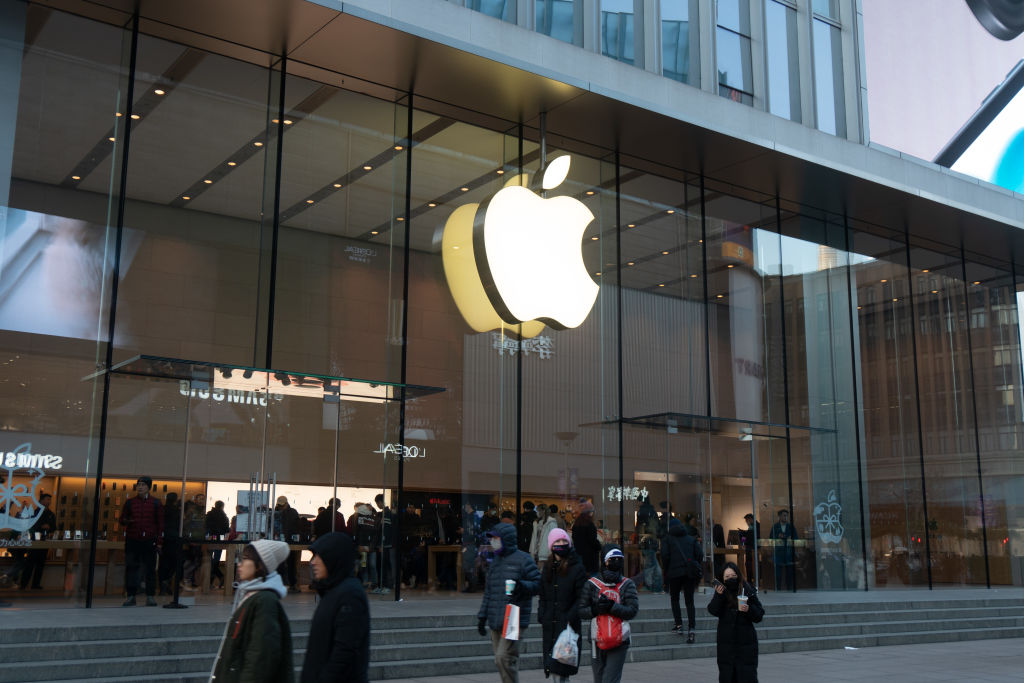Why You Can't Get The Newest Apple Watch Anymore
A decision was made to ban imports of the newest Apple Watch.


Profit and prosper with the best of Kiplinger's advice on investing, taxes, retirement, personal finance and much more. Delivered daily. Enter your email in the box and click Sign Me Up.
You are now subscribed
Your newsletter sign-up was successful
Want to add more newsletters?

Delivered daily
Kiplinger Today
Profit and prosper with the best of Kiplinger's advice on investing, taxes, retirement, personal finance and much more delivered daily. Smart money moves start here.

Sent five days a week
Kiplinger A Step Ahead
Get practical help to make better financial decisions in your everyday life, from spending to savings on top deals.

Delivered daily
Kiplinger Closing Bell
Get today's biggest financial and investing headlines delivered to your inbox every day the U.S. stock market is open.

Sent twice a week
Kiplinger Adviser Intel
Financial pros across the country share best practices and fresh tactics to preserve and grow your wealth.

Delivered weekly
Kiplinger Tax Tips
Trim your federal and state tax bills with practical tax-planning and tax-cutting strategies.

Sent twice a week
Kiplinger Retirement Tips
Your twice-a-week guide to planning and enjoying a financially secure and richly rewarding retirement

Sent bimonthly.
Kiplinger Adviser Angle
Insights for advisers, wealth managers and other financial professionals.

Sent twice a week
Kiplinger Investing Weekly
Your twice-a-week roundup of promising stocks, funds, companies and industries you should consider, ones you should avoid, and why.

Sent weekly for six weeks
Kiplinger Invest for Retirement
Your step-by-step six-part series on how to invest for retirement, from devising a successful strategy to exactly which investments to choose.
If you unwrapped a new Apple Watch for Christmas, consider yourself lucky: Apple is now banned from importing their latest watch offering into the United States after a patent dispute.
Masimo, a technology company, submitted a complaint about the blood oxygen sensor used in the latest Apple Watch. Subsequently, the U.S. International Trade Commission (ITC) ruled in October that Apple was in violation and said the company could no longer import the product into the United States.
Apple referred Kiplinger to a full statement given to 9to5Mac, which said the company "work[s] tirelessly to create products and services that meaningfully impact users' lives."
From just $107.88 $24.99 for Kiplinger Personal Finance
Become a smarter, better informed investor. Subscribe from just $107.88 $24.99, plus get up to 4 Special Issues

Sign up for Kiplinger’s Free Newsletters
Profit and prosper with the best of expert advice on investing, taxes, retirement, personal finance and more - straight to your e-mail.
Profit and prosper with the best of expert advice - straight to your e-mail.
"We strongly disagree with the USITC decision and resulting exclusion order, and are taking all measures to return Apple Watch Series 9 and Apple Watch Ultra 2 to customers in the U.S. as soon as possible," the Apple statement said.
The products in question are the Apple Watch Series 9 and Apple Watch Ultra 2. The Apple Watch SE does not include the blood oxygen sensing technology, and therefore is still being sold as usual. Service and repairs of the Apple Watch Series 9 and Apple Watch Ultra 2 will also still be doable through Apple, according to 9to5Mac.
The watches are no longer available directly through Apple in the United States. However, it's possible you can still snag one from third-party sellers like Amazon and Best Buy, which will sell until they run out of the product.
After the ITC decision, the ball went to President Joe Biden's court. The administration had a review period in which they could veto the ruling, but they declined to. That review period ended December 25.
Apple appealed the ban decision on Tuesday, Reuters reported, and filed an emergency request to stop the ban to the U.S. Court of Appeals for the Federal Circuit. The company's actions now puts onus on U.S. Customs and Border Protection, which, according to Reuters, will make a decision about it on January 12.
In the meantime, Apple stock has been slightly slipping this week, against an otherwise festive week for the stock market.
TechRadar called the Series 9 "the best Apple Watch for most people," particularly citing the new everyday feature of the Double Tap. Blood oxygen levels can be a helpful indicator of health and fitness, to monitor illness and while working out. Many readers will recall an increased demand for blood oxygen monitors during the COVID-19 pandemic, as the levels could help catch emergency situations.
Related Content
Profit and prosper with the best of Kiplinger's advice on investing, taxes, retirement, personal finance and much more. Delivered daily. Enter your email in the box and click Sign Me Up.

Alexandra Svokos is the digital managing editor of Kiplinger. She holds an MBA from NYU Stern in finance and management and a BA in economics and creative writing from Columbia University. Alexandra has over a decade of experience in journalism and previously served as the senior editor of digital for ABC News, where she directed daily news coverage across topics through major events of the early 2020s for the network's website, including stock market trends, the remote and return-to-work revolutions, and the national economy. Before that, she pioneered politics and election coverage for Elite Daily and went on to serve as the senior news editor for that group.
Alexandra was recognized with an "Up & Comer" award at the 2018 Folio: Top Women in Media awards, and she was asked twice by the Nieman Journalism Lab to contribute to their annual journalism predictions feature. She has also been asked to speak on panels and give presentations on the future of media and on business and media, including by the Center for Communication and Twipe.
-
 Quiz: Do You Know How to Avoid the "Medigap Trap?"
Quiz: Do You Know How to Avoid the "Medigap Trap?"Quiz Test your basic knowledge of the "Medigap Trap" in our quick quiz.
-
 5 Top Tax-Efficient Mutual Funds for Smarter Investing
5 Top Tax-Efficient Mutual Funds for Smarter InvestingMutual funds are many things, but "tax-friendly" usually isn't one of them. These are the exceptions.
-
 AI Sparks Existential Crisis for Software Stocks
AI Sparks Existential Crisis for Software StocksThe Kiplinger Letter Fears that SaaS subscription software could be rendered obsolete by artificial intelligence make investors jittery.